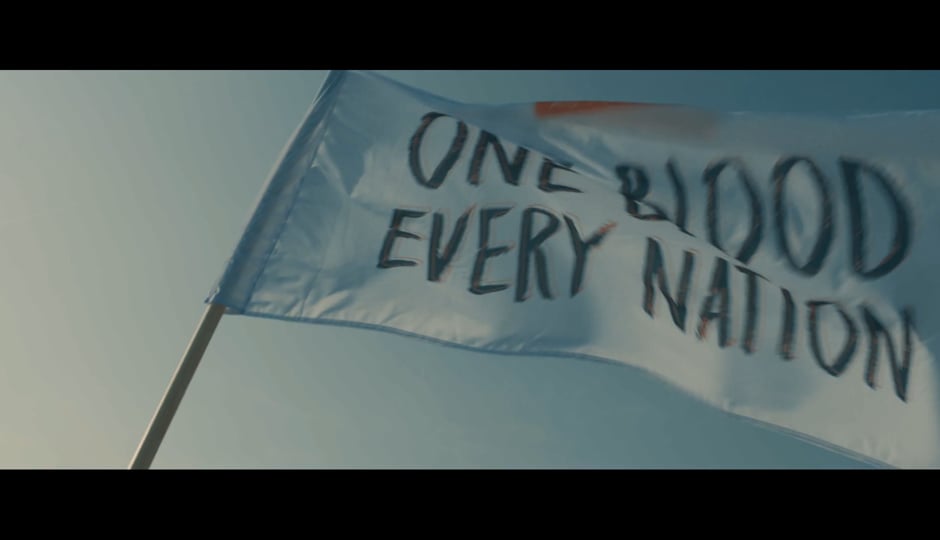Terrell Murphy leads the Focus Group on Kingdom Culture & Communication on Social & Family principles, working with leaders in cities. Contact him here for more information.
1. Health Care,
2. Rescue & Earth care
3. Reconciliation
Social/Cultural Transformation
Kingdom Culture for Overcoming Disease, Disasters and Divisions

"First the good Samaritan “went to him.” To see healing and reconciliation Christians must get involved. Waiting for the needy and hurting to speak up or come to us is not an option. The Samaritan “went to” the broken person by the road. Christians must take the initiative, go personally, and learn how people think and feel about situations.
Second, Jesus said the Samaritan “bandaged his wounds, pouring on oil and wine.” Once we see a need, we must act right away with the means we have. It may seem minor, but any actions we do may serve as “bandages” and “oil” for a community. Wherever healing is needed, Christians must take the lead and get it done.
Third, the Samaritan “put the man on his own donkey, brought him to an inn, and took care of him.” Christians must do more than appeal to the church, the government, or other groups to do something. Christians need to consider what they have that can be used to make a difference and where they can take the hurting to be healed. But often the solution is greater than our own expertise, so like the Samaritan we must recognize our limits but commit to find someone else that can take the healing further such as the “inn.”
Fourth, Jesus said that the Samaritan “took out two denarii and gave them to the innkeeper. “Look after him,” he said, “and when I return, I will reimburse you for any extra expense you may have.” Christians must give immediate financial assistance but have long term resources available. But more importantly, Christians must remain engaged, return to check on progress, and keep giving until the healing has finally come. It’s easy to emotionally respond to these issues, give one time and walk away, and never think of it again. Commitment to the end is necessary to see true healing happen. "
Beliles, Mark
Quote from the book:
How Nation´s Lay Hands on their Sick
Our Services
Our Services
Strategy & Best Practices to Transform the Social Wellbeing of a Nation
Strategy & Best Practices to Transform the Social Wellbeing of a Nation
Doctors and medicine were never condemned by God but were condemned as idolatry if people sought human doctors and medicines without seeking God Himself (Jeremiah 46:11b). Galatians 5:19-21 declares that the abuse of drugs is witchcraft. The Greek word for witchcraft is pharmakeia. The English word pharmacy is a derivative. Medicines or drugs that provide altered states of mind deceive the body into a delusion that there is nothing causing pain, when in fact there is. It is proper and wise to use medicine to treat diseases, but there should also be an effort in searching for the cause of the disease (of course, if cause is known and terminal then it is okay to provide relief).
Medicine itself is a Biblical idea. Ezekiel 47:12 refers to the use of trees, leaves, oils, incense, and plants for medicine. These are good alternatives to other drugs and surgery. Even if a certain medical practice can be successful, it does not necessarily mean that it is approved by God. Abortion procedures “work” but are immoral and criminal by God’s standards. Even though a common traditional medicine may be accepted by a culture or community, the believer is still responsible to evaluate it biblically and ethically against God’s standards.
Besides the general responsibility to care for the poor, victims of natural or human-caused disasters must be assisted as well. Earthquakes, famine, and weather-related events create critical need for emergency relief. Other times tragedies needing assistance may be caused by civil war or terrorism, creating refugees, starvation and wounds. The church must be prepared to contribute.
In the same way, where the environment and natural resources are being polluted and wasted, it is our calling to be good stewards of creation.
The problem of division in nations is an area where Christians can have significant influence. Racial and tribal reconciliation, especially where divisions have been enforced by government through immoral segregationist laws and policies, is one of the most challenging areas in many developing nations. Religious and denominational divisions can be intertwined as well, causing unbelievers to refrain from church involvement. Education and economic divides are also problematic. These areas are sources of deep wounding for many nations especially when these divisions have existed for generations and even sometimes led to war.
The United Nations has the ability to send peace-keepers to stop war and create buffers that reduce violence. Governments can eliminate unjust discriminatory laws that will help ease tension and rectify certain wrongs. Churches can gather and pray for their country. But healing is never accomplished simply through the end of violence, prayer, or the passage of laws. True cultural healing occurs when the church acts in courageous ways to “lay hands on the sick” in their nation.
RESOURCES
RESOURCES

Organizations & Affiliates

